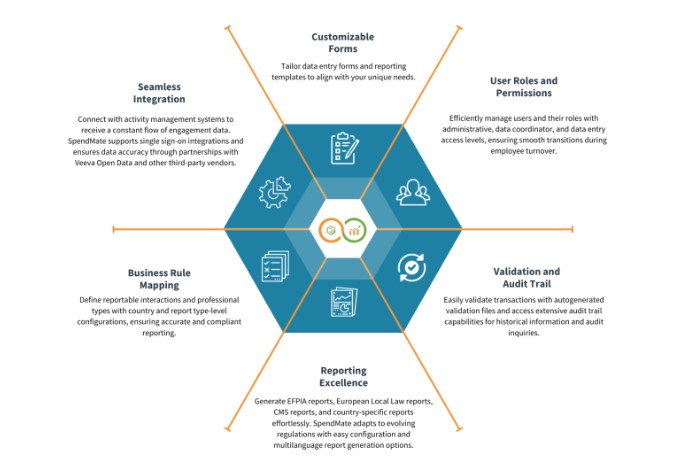Introduction to Electronic Invoicing System
In today’s fast-paced digital world, businesses are constantly seeking ways to streamline their operations, reduce costs, and enhance efficiency. One significant advancement in financial technology is the electronic invoicing system. This innovative solution replaces traditional paper-based invoicing with a fully digital process, enabling companies to issue, receive, and store invoices electronically. As businesses globally move towards automation, electronic invoicing has become an essential tool for improving financial transactions and compliance.
Understanding Electronic Invoicing System
An electronic invoicing system is a software-driven approach that automates the generation, sending, and processing of invoices in a structured digital format. Unlike traditional invoicing methods that rely on manual data entry and physical documents, an electronic invoicing system ensures accuracy, security, and efficiency. The system allows businesses to eliminate paperwork, reduce human errors, and comply with regulatory requirements seamlessly.
Electronic invoicing systems are commonly used across various industries, including retail, manufacturing, healthcare, and service-based businesses. Many governments worldwide, including Saudi Arabia, have mandated e-invoicing to enhance tax compliance and reduce fraud. The structured format ensures that invoices can be processed automatically by accounting systems, reducing the need for manual intervention.
Key Features of an Electronic Invoicing System
A robust electronic invoicing system comes with multiple features designed to simplify and enhance invoicing processes. One of the most crucial features is automation, which allows businesses to generate invoices instantly, reducing the time spent on manual tasks. Automation also ensures that invoices are error-free, eliminating discrepancies that may arise from human mistakes.
Another essential feature is real-time tracking and notifications. Businesses can monitor the status of invoices, from issuance to payment, ensuring better financial planning and cash flow management. Additionally, electronic invoicing systems support multi-currency and multi-language invoicing, making them ideal for companies operating in international markets.
Security is also a key aspect of an electronic invoicing system. With digital signatures and encryption, businesses can ensure that invoices are tamper-proof and comply with regulatory standards. Moreover, electronic invoices are stored in secure cloud-based platforms, enabling easy retrieval and reducing the risk of document loss.
Benefits of Implementing an Electronic Invoicing System
The adoption of an electronic invoicing system offers several advantages for businesses. One of the primary benefits is cost reduction. By eliminating the need for paper, printing, and postal services, companies can significantly cut down on operational expenses. Additionally, automated invoicing reduces labor costs associated with manual data entry and invoice processing.
Another major benefit is improved efficiency and productivity. Electronic invoices are generated and sent instantly, eliminating delays caused by postal services or manual approvals. This efficiency ensures that businesses receive payments on time, enhancing cash flow and financial stability.
Compliance with tax regulations is another critical advantage. Many governments, including the Saudi Arabian Tax Authority (ZATCA), require businesses to adopt electronic invoicing to ensure transparency and prevent tax evasion. An electronic invoicing system simplifies compliance by automatically formatting invoices according to legal requirements, reducing the risk of penalties and audits.
Moreover, electronic invoicing contributes to environmental sustainability. By reducing the reliance on paper and physical storage, businesses can decrease their carbon footprint, aligning with global efforts to promote eco-friendly practices.
How Electronic Invoicing System Enhances Business Operations
Integrating an electronic invoicing system into business operations leads to seamless financial management. Businesses can streamline their accounting processes, ensuring accurate and timely financial reporting. The automation of invoice generation and processing minimizes errors, leading to improved accuracy in financial statements.
Additionally, electronic invoicing fosters better supplier and customer relationships. With faster invoice delivery and real-time status tracking, businesses can maintain transparency with their clients and vendors. This transparency builds trust and reduces disputes related to delayed or lost invoices.
For multinational companies, an electronic invoicing system provides significant advantages by supporting different tax structures and compliance requirements. Businesses operating across various jurisdictions can ensure regulatory adherence without the complexity of manually adjusting invoices for different regions.
Challenges of Implementing an Electronic Invoicing System
Despite its numerous benefits, the transition to an electronic invoicing system may come with certain challenges. One of the primary obstacles is resistance to change. Employees and stakeholders who are accustomed to traditional invoicing methods may find it difficult to adapt to a digital system. Proper training and awareness programs are necessary to ensure a smooth transition.
Integration with existing systems can also pose a challenge. Businesses using legacy accounting software may need to invest in upgrades or new solutions that support electronic invoicing. Ensuring compatibility with existing financial management tools is crucial for a successful implementation.
Another challenge is cybersecurity risks. Since electronic invoices contain sensitive financial data, businesses must implement robust security measures, such as encryption and secure authentication, to prevent data breaches and fraud.
Choosing the Right Electronic Invoicing System
Selecting the right electronic invoicing system is essential for maximizing its benefits. Businesses should consider factors such as ease of use, integration capabilities, and compliance with local regulations. A user-friendly interface ensures that employees can quickly adapt to the system without extensive training.
Compatibility with existing accounting software is also a crucial factor. The electronic invoicing system should seamlessly integrate with ERP and financial management solutions to facilitate smooth operations. Additionally, businesses should opt for cloud-based systems that offer secure storage, remote access, and scalability.
Customer support and reliability are other important considerations. A reliable electronic invoicing provider should offer technical support and regular updates to ensure compliance with evolving tax regulations. Businesses should also assess the cost-effectiveness of the system, ensuring that it aligns with their budget while delivering maximum value.
Future of Electronic Invoicing System
The future of electronic invoicing systems looks promising, with advancements in technology driving further innovation. The integration of artificial intelligence (AI) and machine learning will enhance automation, allowing businesses to predict payment trends and optimize financial strategies. Blockchain technology is also expected to play a significant role in ensuring secure and transparent transactions.
Governments worldwide are continuing to enforce e-invoicing mandates, further accelerating adoption rates. As businesses embrace digital transformation, electronic invoicing will become a standard practice, eliminating manual invoicing processes altogether.
Conclusion
The electronic invoicing system is revolutionizing the way businesses manage financial transactions. By automating invoice generation, enhancing security, and ensuring compliance, this digital solution offers numerous benefits, including cost savings, improved efficiency, and better financial management. Although challenges such as integration and cybersecurity risks exist, businesses can overcome them with proper planning and the right software selection. As technology continues to evolve, electronic invoicing will remain a crucial component of modern business operations, driving efficiency and sustainability.







